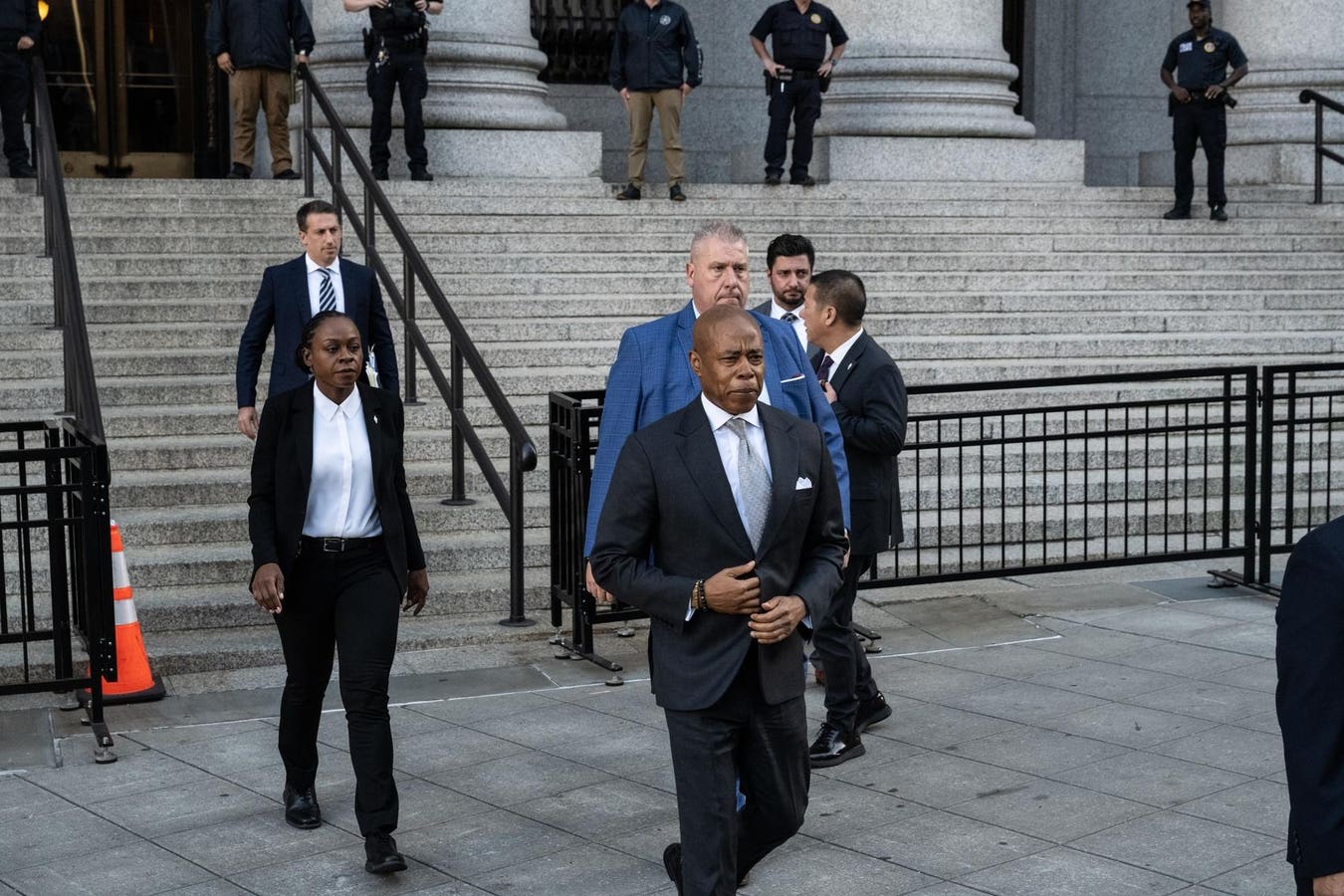Money
Is Bribery Still A Crime Under The Trump Justice Department?

Justice Department Memo Sparks Controversy in Adams Case
The recent memo from the U.S. Justice Department to Danielle R. Sassoon, instructing her to drop the charges against New York City Mayor Eric Adams, has ignited significant debate. The memo clarified that this decision was made without evaluating the case’s evidence or legal merits, deferring instead to the U.S. Attorney’s Office. Mayor Adams’ focus on crime prevention and immigration was cited as justification, though his statistics indicate that street crime isn’t a major issue. There is also no clear evidence that immigration efforts would be hampered by his legal defense, raising questions about the memo’s rationale.
Sassoon’s Stance: A Resignation and a Statement
Danielle Sassoon, a conservative Republican and former clerk for Justice Scalia, has been critical of mass commutations, as seen in her Wall Street Journal opinion piece. She argued that such actions undermine justice and safety by disregarding the input of prosecutors and judges. Her resignation shortly after receiving the memo highlights her strong stance against what she perceives as a disregard for judicial processes. This move underscores her commitment to prosecutorial integrity and sets the stage for potential conflicts in handling the Adams case.
Legal Authority and Procedural Challenges
An important legal nuance is that the U.S. Attorney cannot unilaterally dismiss charges. Any such motion must be presented to Judge Dale Ho, who has already denied a previous dismissal request from Adams’ lawyers. This procedural requirement suggests that Judge Ho’s decision will be pivotal and may uphold the case, despite the Justice Department’s directive. This legal checkpoint adds a layer of judicial oversight to the administration’s directive, ensuring that the dismissal isn’t a foregone conclusion.
The Broader Implication: Trump’s FCPA Policy
The Trump administration’s move to halt Foreign Corrupt Practices Act (FCPA) prosecutions reflects a broader strategy. The executive order claims that FCPA enforcement puts American businesses at a global disadvantage. However, this approach overlooks the potential repercussions. The FCPA has been instrumental in high-profile cases like Goldman Sachs’ $2.9 billion settlement, highlighting its role in combating corruption. The 26 enforcement actions and 31 ongoing investigations last year demonstrate the law’s active use, now potentially stifled by the new policy.
Global Ramifications and Business Implications
Businesses should be cautious despite the relaxed enforcement. The FCPA’s five-year statute of limitations means past actions could still be prosecuted. Additionally, future administrations may reverse this policy. International laws, such as France’s Sapin II and the UK Bribery Act, also pose risks. The UK Act’s extraterritorial reach means companies operating there could face penalties regardless of where corruption occurs, adding layers of compliance complexity.
Conclusion: A Complex Intersection of Law and Policy
The dismissal memo in the Adams case intersects with the Trump administration’s broader approach to corruption laws. While the immediate focus is on procedural challenges, the long-term effects on global business practices and legal standards are significant. The interplay between domestic politics, legal authority, and international regulation underscores the complexity of the issue, setting a precedent that will be closely watched both domestically and internationally.
-
Australia14 hours ago
Cyclone Zelia WA category 5 storm to hit Pilbara region near Karratha and Port Hedland
-
Canada20 hours ago
Work underway to twin Calgary feeder main that caused water crisis
-
Money4 days ago
Consumer Financial Protection Bureau Adds Error Message To Home Page
-
Money3 days ago
Winning Content Strategies For Wealth Managers
-
Australia2 days ago
Tropical Cyclone Zelia intensifies to category 2 storm
-
Asia2 days ago
What you need to know about 2024 YR4, the asteroid that could hit Earth in about eight years’ time
-
Entertainment1 day ago
Prince Harry and Meghan Markle’s Best Moments and Photos From the 2025 Invictus Games
-
Australia24 hours ago
Tropical Cyclone Zelia intensifies to category five system off Pilbara coast